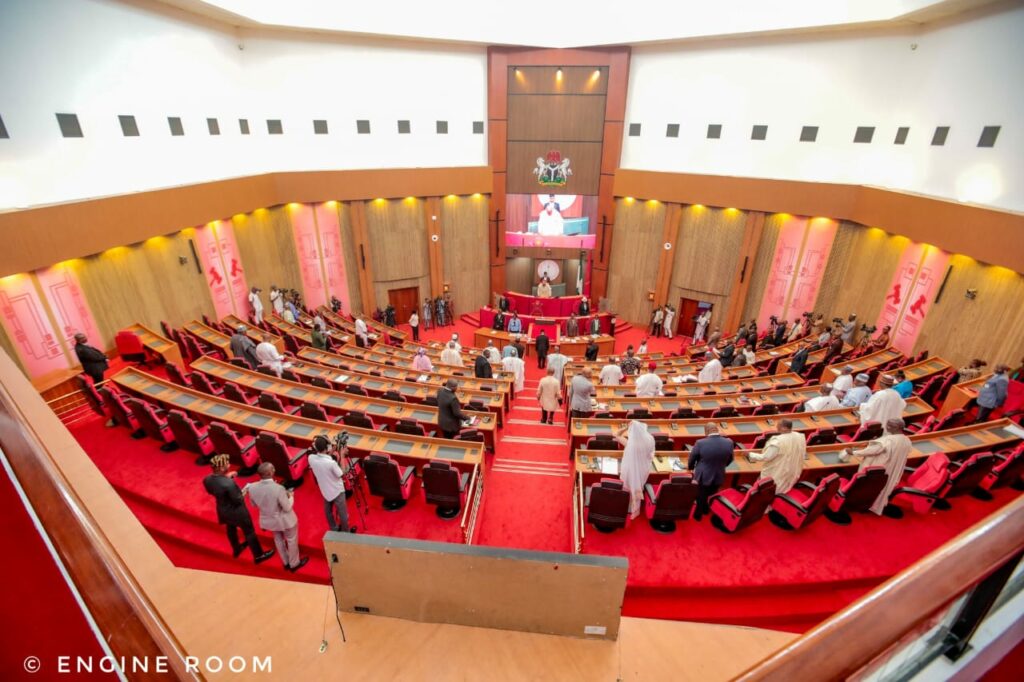From Adesuwa Tsan, Abuja
The Senate witnessed heated debate on Wednesday, May 21, over a bill to regulate and formalise employment in Nigeria’s informal sector through private employment agencies.
Sponsored by Senator Musa Sani, the bill aims to empower the National Directorate of Employment (NDE) to license and monitor private agencies, which would manage employee recruitment, social security, and data for domestic workers, apprentices, interns, and other informal sector employees.
Musa explained that the informal sector, often small-scale and labour-intensive, relies on family members, apprentices, and a few paid workers.
“The informal sector of Nigeria’s economy shows evidence of violation of employees’ rights and non-implementation of labour regulations,” he said, noting its failure to align with International Labour Organisation (ILO) conventions, to which Nigeria is a signatory.
He highlighted the sector’s “decent work deficit”, lacking fair treatment, adequate pay, safe conditions, training opportunities, and collective bargaining.
“The primary goal of this bill is to regulate this sector to promote rights at work, employment, social protection, and social dialogue,” Musa stated, adding that it seeks to ensure fair treatment for informal workers.
The bill proposes empowering the NDE to oversee private employment agencies nationwide.
While some lawmakers supported its potential benefits, others warned it could legitimise exploitation. Senator Adams Oshiomhole cited existing abuses, stating, “Public and private sector agencies use third parties to recruit low-level staff. Recruitment agencies charge ₦150,000 to ₦200,000 per person, but staff earn as little as ₦40,000 monthly.”
He cautioned, “This bill could legitimise the underpayment of workers,” arguing that the NDE’s role is to train and empower the unemployed, not facilitate private hiring.
Senator Diket Plang, chairman of the Committee on Labour and Productivity, noted a similar bill to regulate domestic help employment, which has undergone a public hearing and awaits third reading.
“This job is already the statutory responsibility of the Federal Ministry of Labour,” he said, suggesting consolidation or amendment of the NDE Act.
After extensive debate, Senate President Godswill Akpabio called for a vote.
The bill passed its second reading and was referred to the Committee on Employment, Labour, and Productivity for further review.

